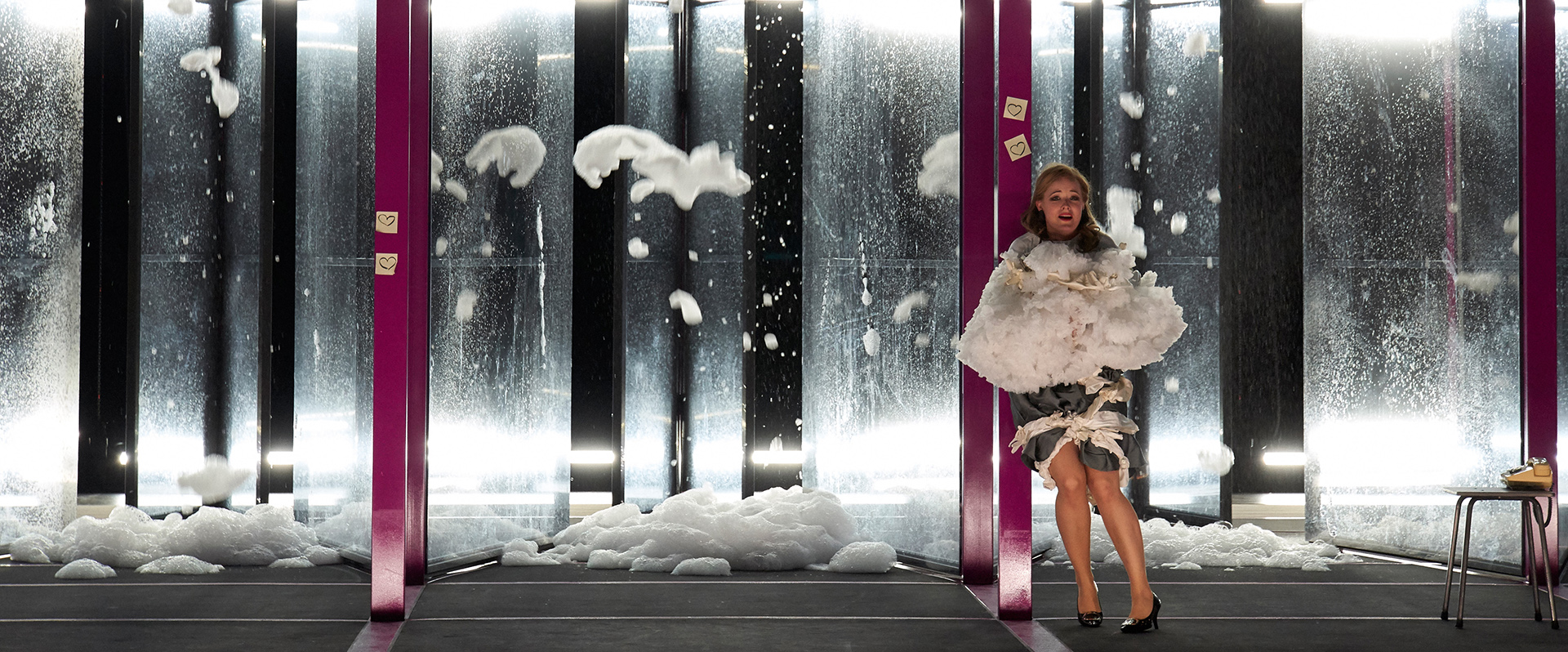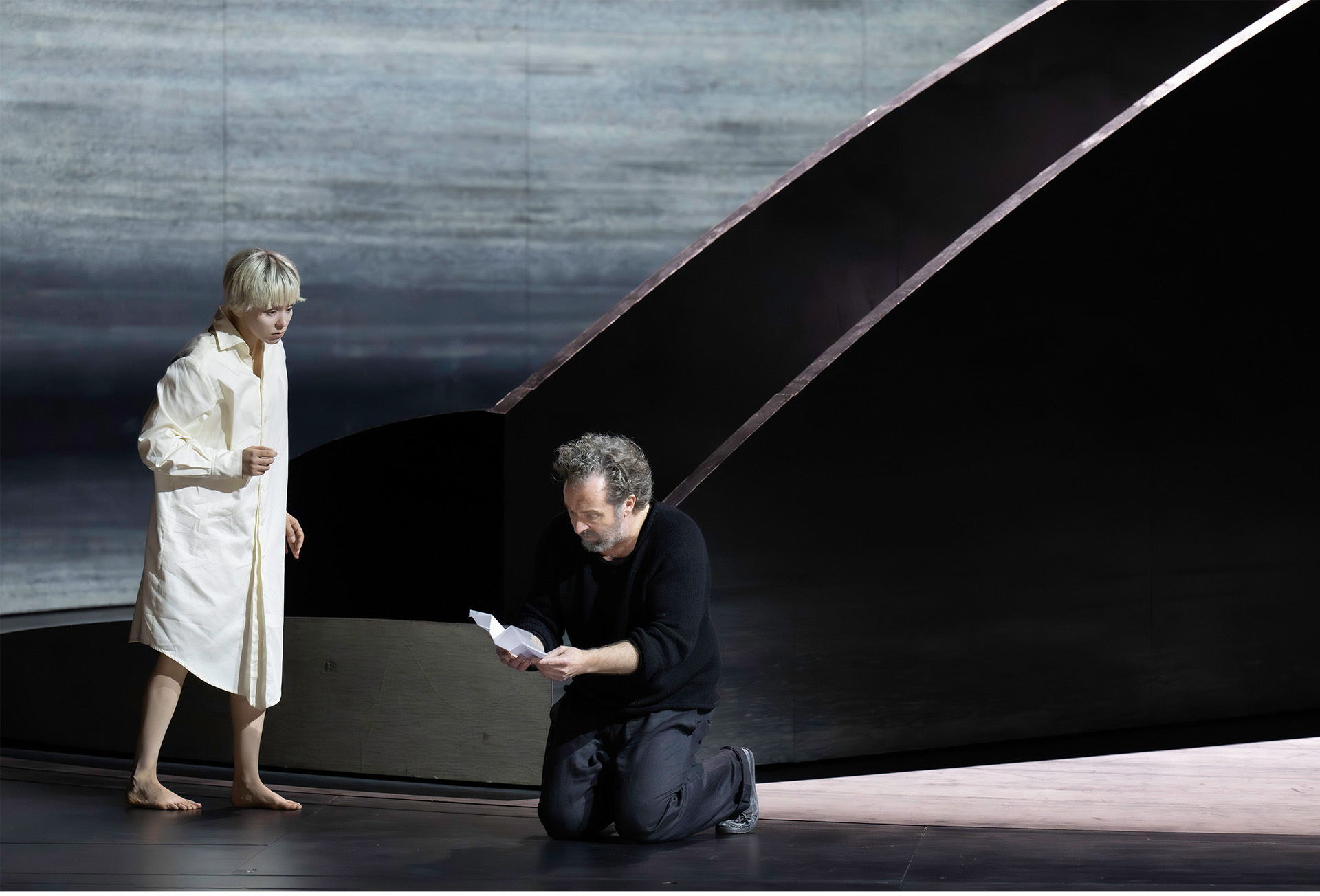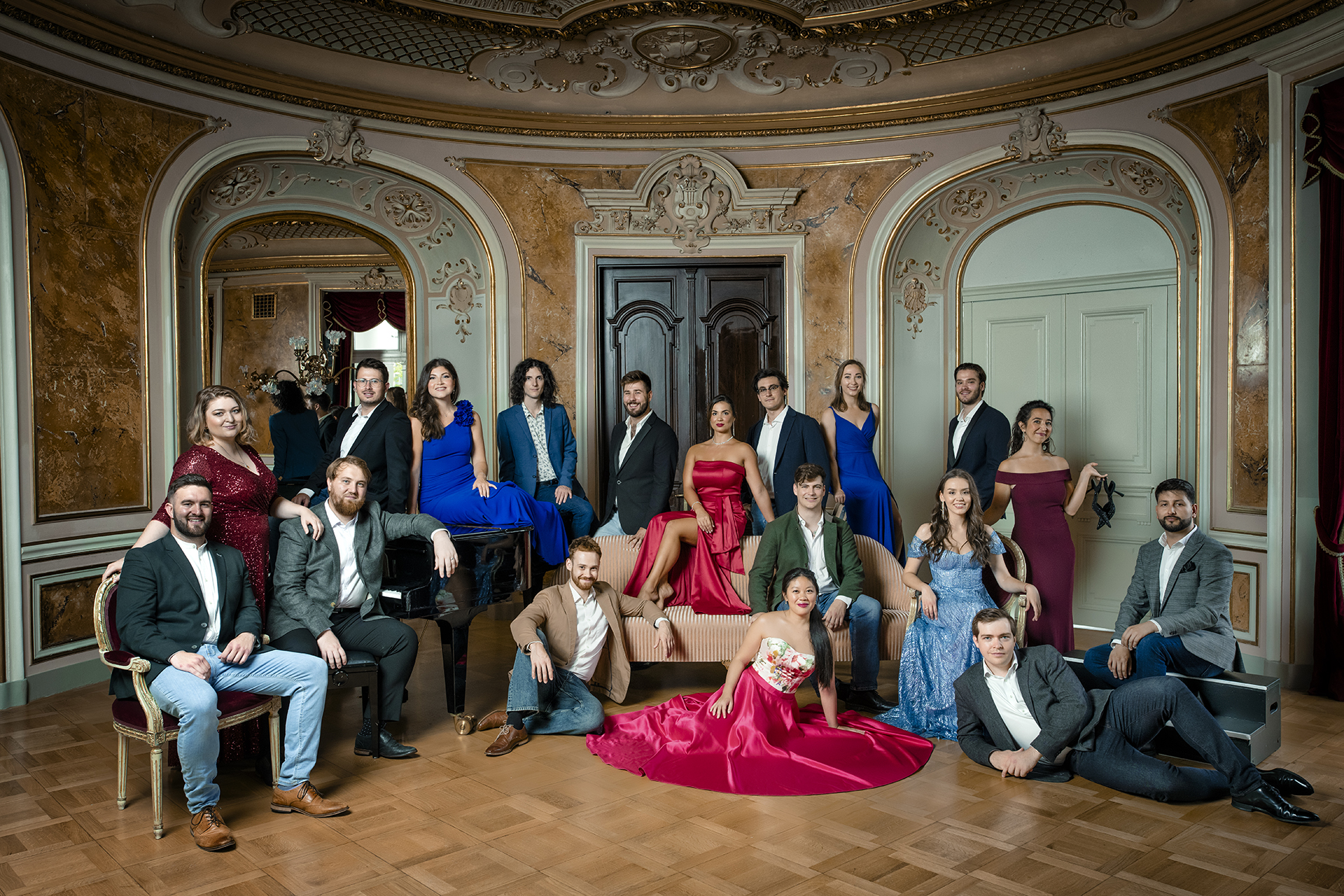 From the Opera Studio to the stage: the path to an opera career – correspondence by Marzena Mikosz
From the Opera Studio to the stage: the path to an opera career – correspondence by Marzena Mikosz
The Zurich Opera House’s May production of “Rigoletto” by Giuseppe Verdi featured a stellar cast. Quinn Kelsey has performed the title role continuously since 2013, with Liparit Avetisyan as the Duke and Brenda Rae as Gilda. Joining this outstanding ensemble was a young Polish singer, Sylwia Salamońska, who has been a member of the International Opera Studio at the Zurich Opera since August 2024.
Performances at the Zurich Opera – one of the most prestigious stages in Europe – provide emerging singers with a unique opportunity not only to showcase their talent, but more importantly, to learn through hands-on experience. Adrian Kelly, director of the International Opera Studio (IOS), describes the program as an ideal bridge between academic training and a professional career: Sing alongside some of the world’s leading singers, they learn a huge amount from that. And there’s two sides, there’s that exposure, but then there’s also coming to a place where they can finish the development in a safe space.
It’s incredibly inspiring! – adds Sylwia Salamońska, who played the Page in “Rigoletto.” The role is small – I’m on stage for just a moment – but the opportunity to attend rehearsals, which we’re required to be present at, and to closely observe how Quinn and Brenda work, act, and sing is incredibly stimulating. I get to watch how they build their roles, how they handle mistakes, navigate musical challenges, and apply their technique. It’s an immensely enriching experience.
Training at the IOS lasts two years. Kelly explains: When talented young singers finish their formal studies at the conservatoire, often it’s too soon to begin a career, they need to finish off a few things, work on their vocal technique, refine their interpretation skills, work on languages, movement, there are so many aspects of being a professional opera singer. And these two years give a nice opportunity to let them sing small roles in big operas to sing bigger roles in our own productions that we put on. And to study, to prepare, to audition for theatres across Europe and the world. So that’s what we aim to do, we aim to be like a bridge between studies and work.
The recruitment process takes place along two tracks. The first is traditional: candidates submit video recordings, which are then reviewed. Out of roughly 800 applications, we will hear 80 people more or less – says Kelly. IOS collaborates with theatres, music academies, and similar institutions, such as the Opera Academy at the Polish National Opera in Warsaw, and invites singers to audition in Zurich. In the end, approximately eight singers are selected for further training.
It was through the Opera Academy in Warsaw that both Sylwia Salamońska and Alina Adamski came to IOS. Adamski has been affiliated with the Zurich Opera since 2017. The Academy in Warsaw helped me prepare for the auditions – vocally, and also in terms of selecting a repertoire appropriate for my voice, both linguistically and stylistically diverse, she says. For Kelly, key factors during auditions include vocal volume with operatic potential, personality, openness, and the determination to overcome the many challenges that every singer faces.
Adrian Kelly himself took part in the Young Artist Programme at the Royal Opera House in London. How did that experience shape his approach to leading IOS? Well, everyone will tell you that they learn from the positive experiences, from the inspirations, but also from experiences which were less than optimal. And so I understand how important it is to nurture singers, not to intimidate them. Over the years, he has also had several important mentors. That’s why we invite renowned singers with a gift for teaching to work with the Studio. I will say Piotr was inspiring in many ways. But it was most of all meeting him and seeing how friendly he was, how normal, and at the same time how professional. And that combination is really important because it gives people an idea about the sort of person they’re allowed to be. Sometimes you have an idea of how a person acts in that position. And meeting a singer who’s very down-to-earth is extremely valuable.
Sylwia Salamońska came to Zurich at Kelly’s invitation. Zurich wasn’t even on my radar – I never dreamed of coming here. But when I got the chance to audition, I did everything I could to make it happen. “Rigoletto” was the first ‘adult’ opera I sang here. Before that, I performed in two productions for children. Now I’m appearing in “Elijah” by Felix Mendelssohn, which is also Andreas Homoki’s farewell production. In the coming season, I want to make the most of my time in Zurich – especially since several interesting productions are coming up, and I’m slated to perform in some of them. Alina Adamski also performed on the Zurich stage during her time at IOS. As part of the programme, we prepared Mozart’s “La finta giardiniera,” which was later staged by the Opera House itself. When Rosa Feola fell ill, I stepped in – and that’s how I found myself performing with the stars. A similar opportunity arose for Andrzej Filończyk in Rossini’s “The Barber of Seville.”
Aside from Sylwia Salamońska’s performances in “Around the World in 80 Days” by Jonathan Dove, “Wir pfeifen auf den Gurkenkönig” by Samuel Penderbayne, and “Elijah” by Mendelssohn – the Zurich International Opera Studio also features Dominika Stefańska, a mezzo-soprano who has appeared in “Ariadne auf Naxos” by Richard Strauss and “Jakob Lenz” by Wolfgang Rihm. Both singers also performed in Rossini’s “Journey to Reims.”




